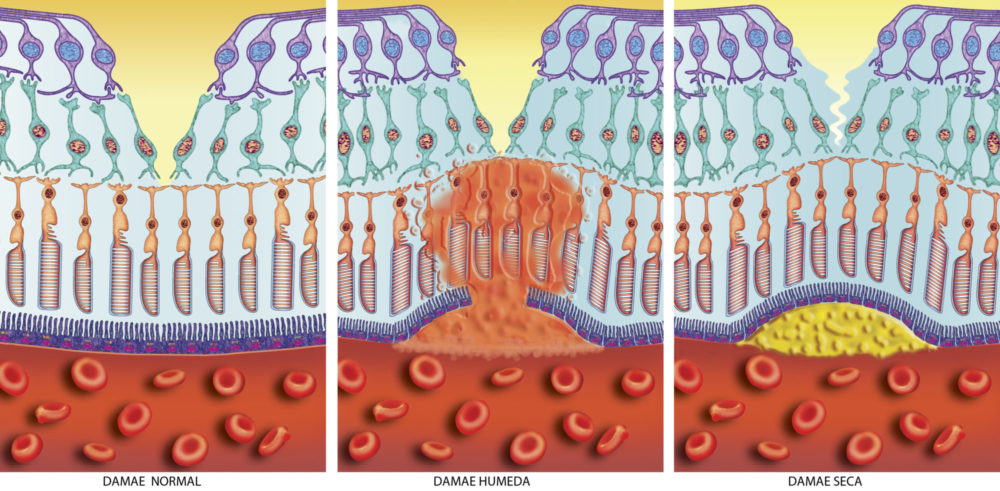Age-related Macular Degeneration, also known as AMD or ARMD, affects as many as 11 million Americans and is the leading cause of vision loss for individuals over the age of 60. Unfortunately, the damage caused by AMD is not always reversible. If it goes untreated, AMD can quickly progress and cause your vision to deteriorate greatly.
Questions to Ask Your Eye Doctor If You are Diagnosed with AMD
- Do I have wet or dry macular degeneration?
- How often should I get a check-up?
- What is an Amsler grid and can you teach me how to perform a test with it at home?
- How can I delay the disease progression?
- What are the current treatments for my form of macular degeneration?
- Are there experimental treatments for macular degeneration I am eligible for?
- Do my current medications have any effect on the disease progression?
- Do you recommend I begin to take vitamin supplements?
Types of Macular Degeneration
Dry macular degeneration is the most common type of AMD, consisting of almost 90% of cases. Dry AMD is caused when the cells in the center of the eye begin to break down and protein deposits known as drusen build up under the retina. As the build-up gets worse, the retina loses support and the individual begins to experience blurry or spotty vision. The vision deterioration can have profound effects on quality of life. Everyday activities
like driving, cooking, and reading could become difficult or even impossible.
Wet AMD is much less common, only affecting about 10% of cases. It does, however, have a much higher risk of vision loss. Wet macular degeneration is when abnormal blood vessels begin to grow underneath the macula. This is called neovascularization. These new vessels are extremely weak and often leak. When they leak blood and/or plasma enters the macula and can cause relatively rapid vision loss. The potentially rapid progression of vision loss in wet AMD is why all cases are considered to be urgent.
Wet macular degeneration can be treated with a class of medications called anti-VEGF medicines. If treated early, there is a high success rate. We recommend that treatment only be performed by experienced fellowship trained retinal specialists. The doctors at the Fort Lauderdale Retina Institute also participate in clinical trials so that you can be offered the latest treatments for macular degeneration.
Regular vision checks are the best way to catch age-related macular degeneration. If caught early, treatments to slow or reverse the progression of AMD have proven to be highly effective. If you have been diagnosed with any form of AMD, the retina experts at the Fort Lauderdale Retina Institute can help you take control of your quality of life.

